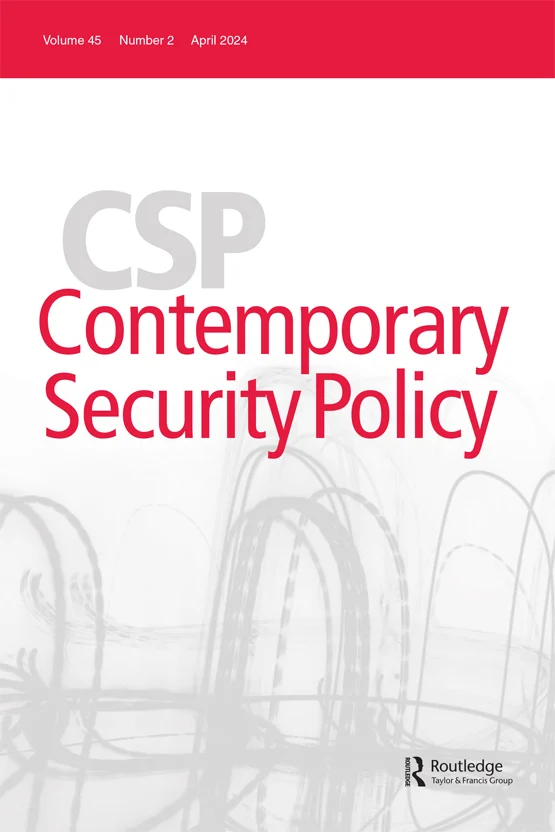全球网络体制综合体中的威权多边主义:国际外交实践的双重转型
IF 5
1区 社会学
Q1 INTERNATIONAL RELATIONS
引用次数: 3
摘要
多边主义被视为当代自由主义国际秩序的构成特征,并与自由主义价值观联系在一起。然而,25年来,专制国家一直主张扩大网络安全问题的多边治理模式,而主要巩固的民主国家却经常反对这些模式。我们通过区分被忽视的专制多边主义变体和被更好理解的自由主义变体来解释这个难题。中俄联盟在联合国内外采取了各种策略,以促进在关键的网络治理过程中采用这种专制形式,以实现具体的网络安全目标和挑战自由国际秩序的更广泛目标。自由民主国家反对专制多边主义的实例化,但它们也改变了对多边主义的理解,为私人和多方利益相关者的治理提供了更多空间,从而导致多边主义实践的双重转变。文章最后讨论了我们的分析对多边主义的影响。本文章由计算机程序翻译,如有差异,请以英文原文为准。
Authoritarian multilateralism in the global cyber regime complex: The double transformation of an international diplomatic practice
Multilateralism is regarded as a constitutive feature of the contemporary liberal international order and is associated with liberal values. However, for twenty-five years, authoritarian states have advocated the expansion of multilateral governance modalities for cybersecurity issues while major consolidated democracies have often opposed them. We explain this puzzle by distinguishing an overlooked variant of authoritarian multilateralism from the better-understood liberal variant. A Russo-Chinese coalition has employed various strategies within and beyond the United Nations to facilitate the adoption of this authoritarian variant for key cyber-governance processes, to achieve both specific cybersecurity goals and broader aims in contesting the liberal international order. Liberal democracies oppose instantiating authoritarian multilateralism, but they have also altered their understanding of multilateralism to encompass more space for private and multistakeholder governance alongside it, leading to a double transformation of the practice of multilateralism. The article concludes by discussing the implications of our analysis for multilateralism.
求助全文
通过发布文献求助,成功后即可免费获取论文全文。
去求助
来源期刊

Contemporary Security Policy
Multiple-
CiteScore
14.60
自引率
6.80%
发文量
22
期刊介绍:
One of the oldest peer-reviewed journals in international conflict and security, Contemporary Security Policy promotes theoretically-based research on policy problems of armed conflict, intervention and conflict resolution. Since it first appeared in 1980, CSP has established its unique place as a meeting ground for research at the nexus of theory and policy.
Spanning the gap between academic and policy approaches, CSP offers policy analysts a place to pursue fundamental issues, and academic writers a venue for addressing policy. Major fields of concern include:
War and armed conflict
Peacekeeping
Conflict resolution
Arms control and disarmament
Defense policy
Strategic culture
International institutions.
CSP is committed to a broad range of intellectual perspectives. Articles promote new analytical approaches, iconoclastic interpretations and previously overlooked perspectives. Its pages encourage novel contributions and outlooks, not particular methodologies or policy goals. Its geographical scope is worldwide and includes security challenges in Europe, Africa, the Middle-East and Asia. Authors are encouraged to examine established priorities in innovative ways and to apply traditional methods to new problems.
 求助内容:
求助内容: 应助结果提醒方式:
应助结果提醒方式:


